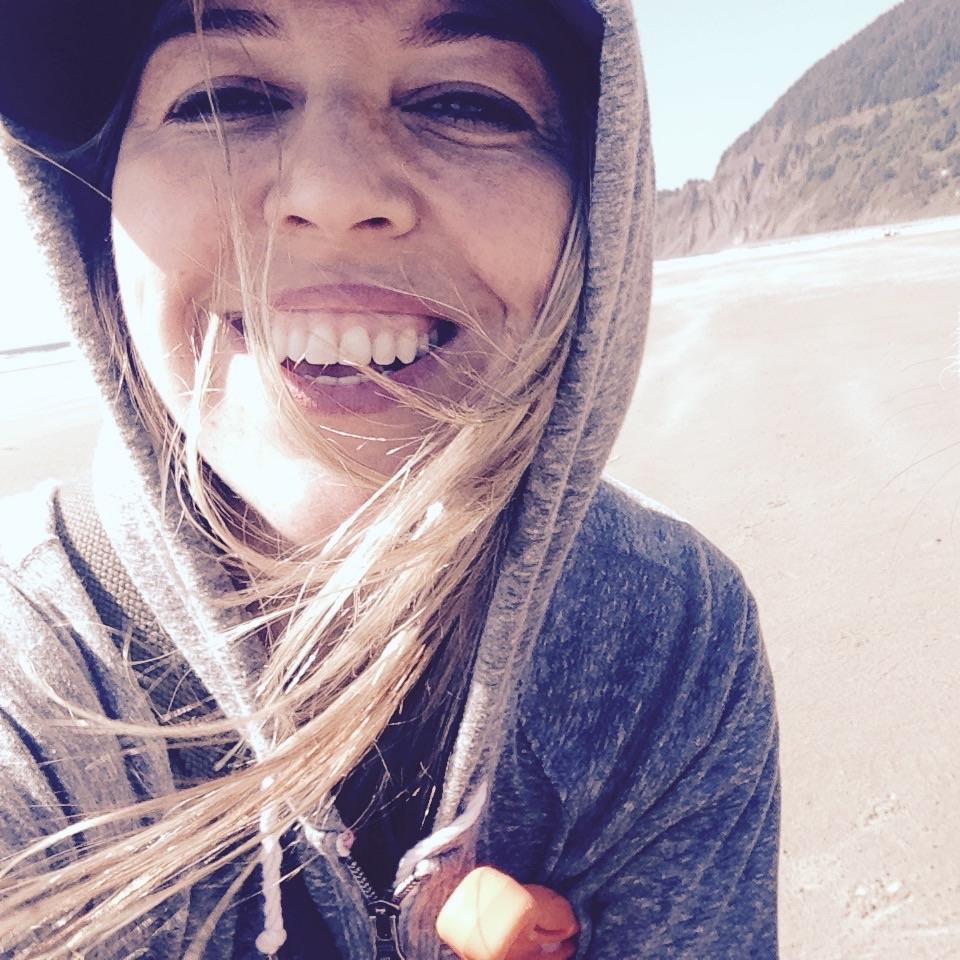Freedom Vs Safety: Where Do We Draw the Line?
PUBLICATION: Goldendale Sentinel, WA print edition

When I was nine years old, I was the Seat Belt Girl.
I say this not only because I wore my lap belt religiously as a child, but because Oregon at the time was trying to introduce mandatory safety belt laws and they had these campaign ads during the election with a montage of child voices and faces.
I was the kid in the magenta jumpsuit who said: “When I get in the car I always buckle up, because it’s the law.” Then, with a toothy smile, I gave a punch into the air.
It is not only because my mom saved the tape all these years that I remember it so clearly. The seat belt law passed that year, four years behind Washington, and the move helped kick off a wave of national seat belt legislation.
Since then, the National Highway Traffic Safety Administration estimates up to 12,500 lives are saved every year due to these seat belt laws, which I think is fantastic.
In the years since that measure, however, other personal safety laws have followed, some of which have been questionable. Some have included motorcycle helmets, bicycle helmets, booster seats, air bags, personal flotation devices, tanning beds, and fireworks.
I recently Googled “rollerblading kneepad legislation” and was genuinely surprised to find there wasn’t any. Seriously. It wasn’t until then I realized how weird it was I’d searched it in the first place.
The question at hand, I believe, is when the state should get involved in personal safety and when it should back off.
As I see it, the government is charged with taking care of its people and ought to do everything it can to ensure they are healthy, happy and free to flourish. Obviously, being alive is one of the key requirements.
The challenge, however, is to do that in a way that doesn’t infringe on anybody’s rights. That gets tricky when you have public taxpayers involved via medical bills and even trickier when kids are factored in.
Everyone has a different definition of risky behavior, but we can all agree certain things pose a greater threat than others. I don’t think a child should be subjected to unreasonably dangerous situations because of lousy parental judgment, regardless of personal freedoms. Kids shouldn’t die because their parents lack foresight.
But should the state intervene? Let me digress with a brief story.
Ten years after my childhood bout with seat belt stardom, I took a trip across seas to the island of Bali in Indonesia. It was my first trek outside the United States and there was a lot of learning being done.
At one point I remember climbing onto the back of a moped to get a lift to a nearby waterfall. I’d been on the island a couple weeks and spent a lot of time thinking about all the rules back home. Signs that life was more relaxed on Bali were everywhere, like when I lost my passport and went to the police, only to be sat down and offered a glass of whiskey.
As I took off down the road towards this raging, beautiful body of water, I sat on the back of that death scooter with rice wine splashing out of my cup and 19 years of life experience accumulating to this moment of revelation where I thought: “This is really freedom.”
Now of course that’s ridiculous for a number of reasons.
First, there are many more elements to freedom than being half-drunk on a bike with a cute Indonesian.
Secondly, if you look at statistics for how many people are killed each year on Southeast Asian mopeds, it will astound you. In Thailand, 36 percent of road users deaths occur on two-wheeled vehicles and in Malaysia it is 57 percent.
Worldwide, no less than 85 percent of annual road traffic deaths take place in developing countries every year, according to the Population Reference Bureau.
Yet for a minute, as I counted how many American laws I was breaking, I felt like I’d harnessed some greater understanding about the meaning of life and why certain liberties shouldn’t be repressed.
My question today, nearly 10 years later, is not about seat belts or bike helmets, but how much control the government should have over its people.
In the newspaper this week we have one story that points to fatality reduction on Washington roads due to seat belt laws. On the next page, there is a story about a biker group called ABATE, which seeks freedom of the road and the repeal of helmet laws. Who is right?
I think the answer lies somewhere in between but, until it is reached, I invite your opinions.
This article was originally published in the Goldendale Sentinel newspaper. Goldendale, Washington.
TAGS

Freedom Vs Safety: Where Do We Draw the Line?
PUBLICATION: Goldendale Sentinel, WA print edition
I say this not only because I wore my lap belt religiously as a child, but because Oregon at the time was trying to introduce mandatory safety belt laws and they had these campaign ads during the election with a montage of child voices and faces.
I was the kid in the magenta jumpsuit who said: “When I get in the car I always buckle up, because it’s the law.” Then, with a toothy smile, I gave a punch into the air.
It is not only because my mom saved the tape all these years that I remember it so clearly. The seat belt law passed that year, four years behind Washington, and the move helped kick off a wave of national seat belt legislation.
Since then, the National Highway Traffic Safety Administration estimates up to 12,500 lives are saved every year due to these seat belt laws, which I think is fantastic.
In the years since that measure, however, other personal safety laws have followed, some of which have been questionable. Some have included motorcycle helmets, bicycle helmets, booster seats, air bags, personal flotation devices, tanning beds, and fireworks.
I recently Googled “rollerblading kneepad legislation” and was genuinely surprised to find there wasn’t any. Seriously. It wasn’t until then I realized how weird it was I’d searched it in the first place.
The question at hand, I believe, is when the state should get involved in personal safety and when it should back off.
As I see it, the government is charged with taking care of its people and ought to do everything it can to ensure they are healthy, happy and free to flourish. Obviously, being alive is one of the key requirements.
The challenge, however, is to do that in a way that doesn’t infringe on anybody’s rights. That gets tricky when you have public taxpayers involved via medical bills and even trickier when kids are factored in.
Everyone has a different definition of risky behavior, but we can all agree certain things pose a greater threat than others. I don’t think a child should be subjected to unreasonably dangerous situations because of lousy parental judgment, regardless of personal freedoms. Kids shouldn’t die because their parents lack foresight.
But should the state intervene? Let me digress with a brief story.
Ten years after my childhood bout with seat belt stardom, I took a trip across seas to the island of Bali in Indonesia. It was my first trek outside the United States and there was a lot of learning being done.
At one point I remember climbing onto the back of a moped to get a lift to a nearby waterfall. I’d been on the island a couple weeks and spent a lot of time thinking about all the rules back home. Signs that life was more relaxed on Bali were everywhere, like when I lost my passport and went to the police, only to be sat down and offered a glass of whiskey.
As I took off down the road towards this raging, beautiful body of water, I sat on the back of that death scooter with rice wine splashing out of my cup and 19 years of life experience accumulating to this moment of revelation where I thought: “This is really freedom.”
Now of course that’s ridiculous for a number of reasons.
First, there are many more elements to freedom than being half-drunk on a bike with a cute Indonesian.
Secondly, if you look at statistics for how many people are killed each year on Southeast Asian mopeds, it will astound you. In Thailand, 36 percent of road users deaths occur on two-wheeled vehicles and in Malaysia it is 57 percent.
Worldwide, no less than 85 percent of annual road traffic deaths take place in developing countries every year, according to the Population Reference Bureau.
Yet for a minute, as I counted how many American laws I was breaking, I felt like I’d harnessed some greater understanding about the meaning of life and why certain liberties shouldn’t be repressed.
My question today, nearly 10 years later, is not about seat belts or bike helmets, but how much control the government should have over its people.
In the newspaper this week we have one story that points to fatality reduction on Washington roads due to seat belt laws. On the next page, there is a story about a biker group called ABATE, which seeks freedom of the road and the repeal of helmet laws. Who is right?
I think the answer lies somewhere in between but, until it is reached, I invite your opinions.
This article was originally published in the Goldendale Sentinel newspaper. Goldendale, Washington.
19 Photos of Good Pets Gone Adorably Bad
November 20, 2016
Hilltop Turbines Signal The Winds of Change
December 20, 2016
The Hard-to-Grasp Business of Patriotism
March 10, 2018
There’s Fun and Then There’s Army Fun
June 20, 2016
In Modern Society, Has the Consumer Become the Consumed?
April 10, 2016
Rachel Cavanaugh